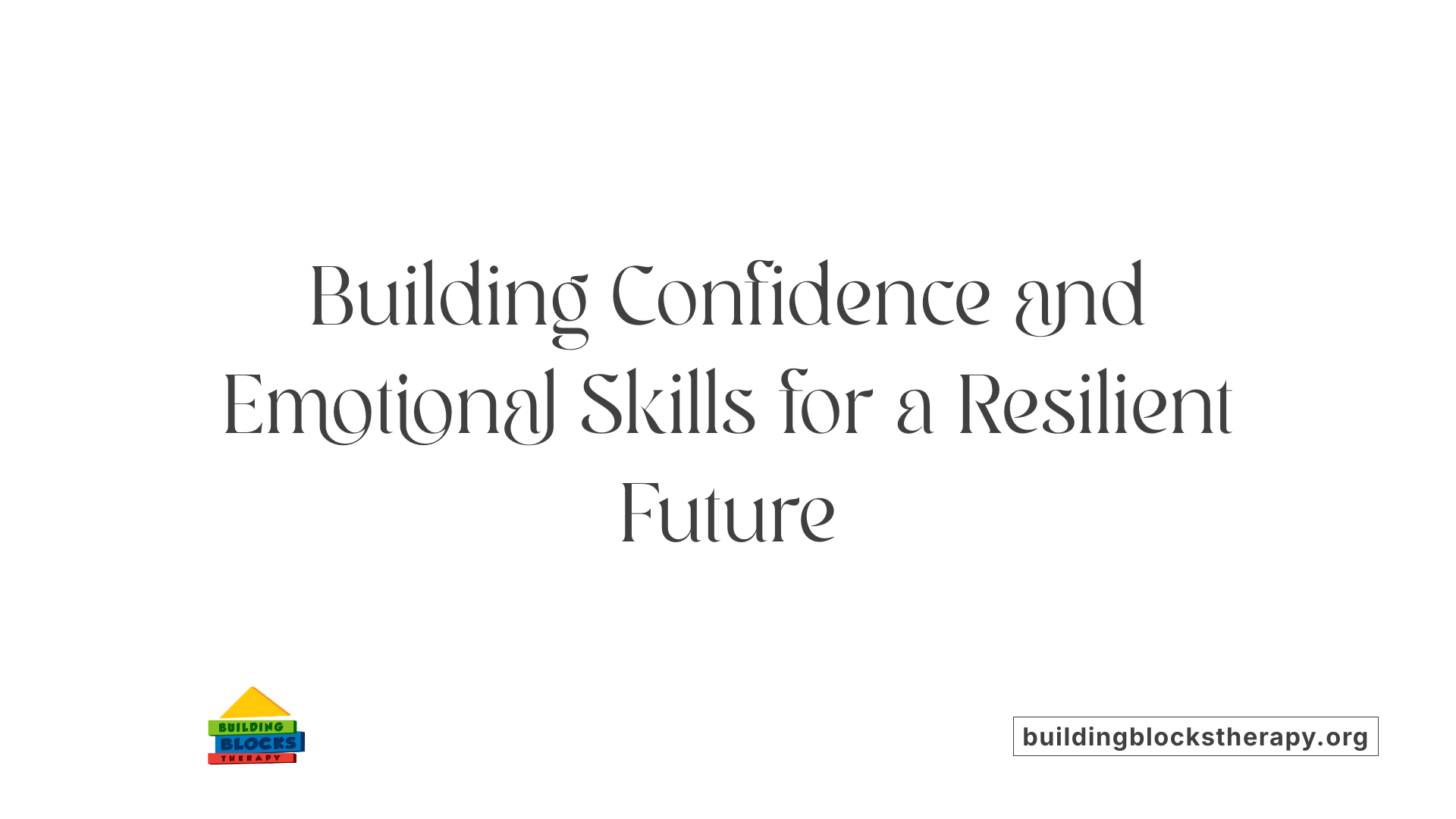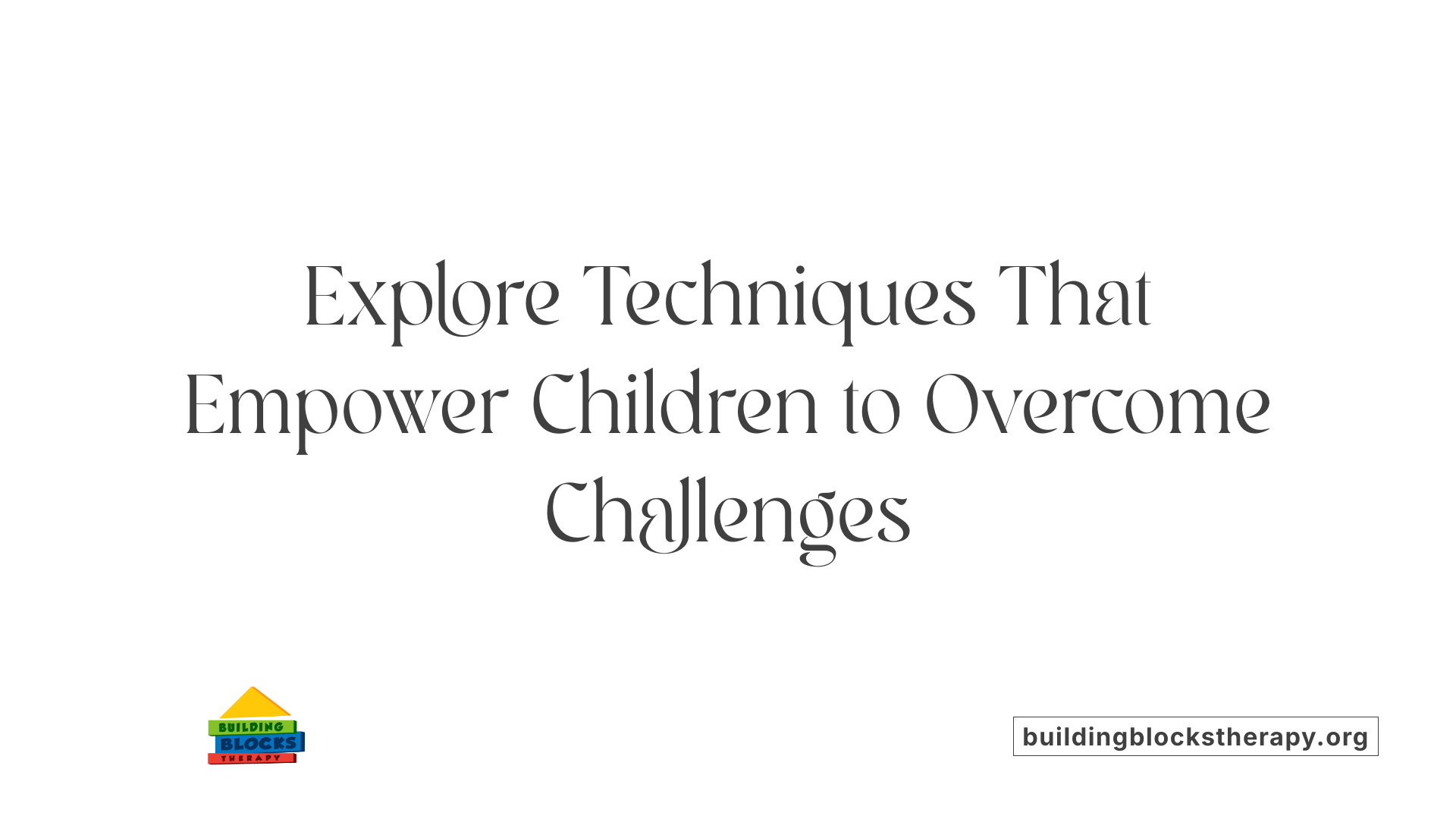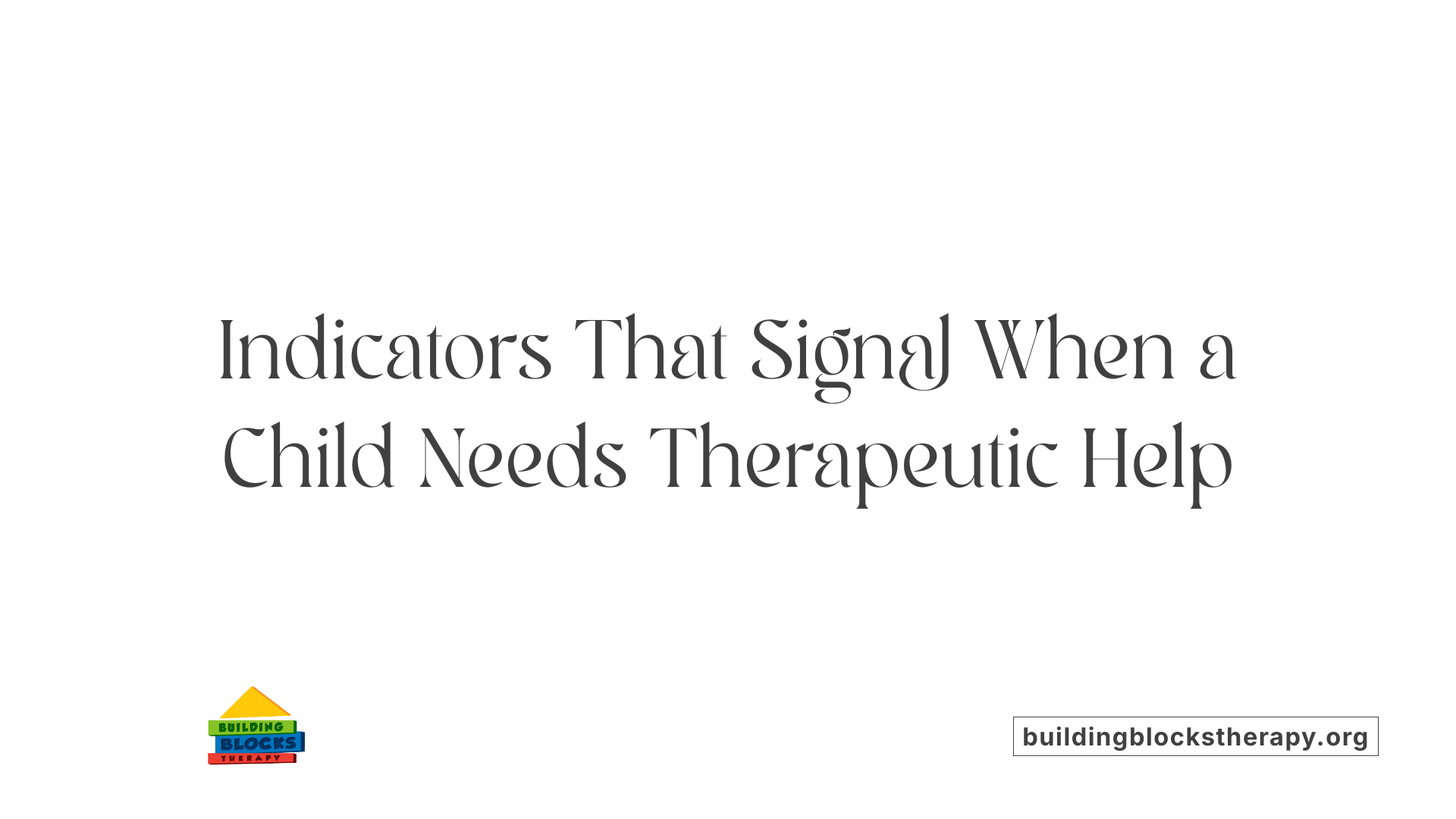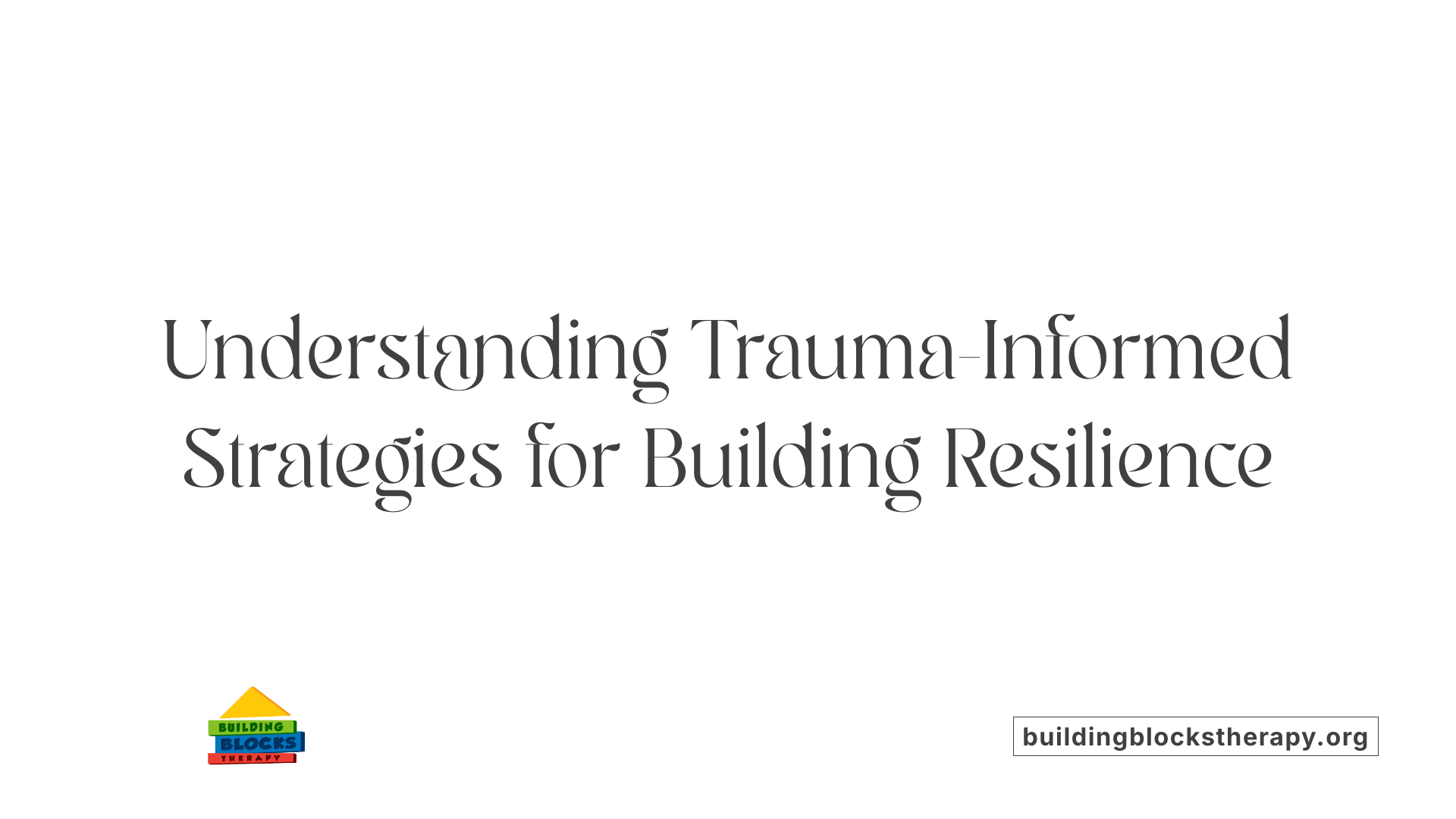Understanding the Role of Therapy in Fostering Resilience
Early childhood is a critical period for emotional and social development. Therapeutic interventions play a vital role in helping children build resilience—the ability to bounce back from stress, trauma, or adversity. This article explores how therapy contributes to emotional growth, social skills, and overall mental health, emphasizing the importance of early intervention and diverse approaches tailored to children’s unique needs.
The Foundations of Resilience through Therapy

How therapy helps children develop confidence and problem-solving skills
Therapy provides children with a nurturing environment to explore their feelings and develop skills essential for resilience. Through age-appropriate techniques such as play therapy, storytelling, and interactive activities, children learn to approach challenges proactively. Gaining problem-solving skills enables them to face obstacles with confidence, making setbacks feel manageable rather than overwhelming.
Children also build self-esteem by recognizing their strengths and achievements in therapy. This process encourages a positive outlook on their abilities, fostering independence and resilience. Family involvement further supports this growth by promoting open communication, understanding, and emotional backing at home.
The importance of emotional regulation in resilience
Emotional regulation is central to a child's ability to bounce back from stress and adversity. Therapy helps children identify and understand their feelings, recognize triggers, and practice techniques like deep breathing, relaxation exercises, mindfulness, and journaling. These skills allow children to manage their emotions effectively, reducing impulsivity and reactivity.
By developing emotional control, children can better handle difficult situations, such as loss, trauma, or family conflict. Techniques like cognitive-behavioral therapy (CBT) and trauma-informed care teach children to reframe negative thoughts and feel more in control of their emotional responses, which are vital for long-term resilience.
The role of safe environments in facilitating emotional expression
A secure and supportive setting is fundamental for children's emotional growth. Child therapy ensures a safe space where children can freely express their feelings without judgment. Therapeutic techniques such as play therapy, art therapy, and storytelling facilitate non-verbal and verbal expression, allowing children to process complex or overwhelming emotions.
Trauma-informed approaches also focus on creating predictable and trustworthy environments, which are especially important for children who have experienced adversity. These environments foster trust, support healing, and help children develop coping strategies. Incorporating elements like gentle touch therapies—such as pediatric massage—can also reduce stress and promote feelings of safety and calmness.
Overall, therapy helps children cultivate resilience by strengthening emotional regulation skills, building confidence through problem-solving, and providing a safe space for emotional expression. These elements work together to support healthy development and long-term well-being.
Tools and Techniques Facilitating Resilience

What therapy techniques are used to foster resilience in children?
A variety of therapy approaches are employed to help children develop resilience, each focusing on different aspects of emotional and psychological growth.
Play therapy, art therapy, and storytelling are among the most age-appropriate methods. These techniques allow children to express their feelings nonverbally, explore their experiences, and build self-understanding in a safe environment. For example, through play therapy, children use toys and games to act out situations, making it easier to process difficult emotions.
Cognitive-Behavioral Therapy (CBT) is another cornerstone modality. It helps children recognize negative thought patterns and develop healthier thinking styles. Trauma-focused therapy, including specific trauma-informed care practices, supports children in processing adverse experiences like loss or abuse. Techniques such as grounding exercises and emotional regulation strategies are central to this approach.
Beyond these individual therapies, family involvement plays a vital role. Parent training programs strengthen the parent-child relationship, promote positive parenting, and create a supportive home environment. Family sessions can improve communication and help address conflicts that might hinder resilience.
Furthermore, social-emotional learning (SEL) programs implemented in schools provide children with skills to manage emotions, resolve conflicts, and foster positive social interactions. These programs build cooperative skills, self-esteem, and problem-solving abilities, complementing therapeutic interventions.
Here is an overview of common therapy techniques used to foster resilience:
| Technique | Description | Purpose |
|---|---|---|
| Play therapy | Uses toys, games, and storytelling for expression | Emotional expression, process trauma |
| Art therapy | Creative activities like drawing and painting to explore feelings | Self-expression, emotional regulation |
| Cognitive-Behavioral Therapy (CBT) | Reframes negative thoughts, develops coping skills | Thought management, emotional control |
| Trauma-focused therapy | Specific strategies for processing trauma | Healing from adverse experiences |
| Family intervention | Parent training, family sessions | Strengthening support systems |
| Social-emotional learning | School-based programs to develop social skills | Behavior regulation, peer relations |
Utilizing these techniques together creates a comprehensive approach to nurturing resilience, ensuring children gain the skills and support necessary to thrive despite challenges. Combining evidence-based therapy modalities with a strong support network helps children build confidence, emotional regulation, and social competence—foundations for a resilient future.
Recognizing When Children Need Therapeutic Support

What are some signs that a child may need therapy to build resilience?
Children often display various behaviors that can signal they need additional emotional support. Persistent withdrawal from social activities, such as avoiding friends or family gatherings, might suggest feelings of sadness or anxiety.
Frequent emotional outbursts, acts of aggression, or difficulties managing stress are also common indicators. For example, a child who becomes easily upset or aggressive in situations that previously did not bother them may be struggling with emotional regulation.
Behavioral changes such as declining school performance, trouble focusing on tasks, or physical complaints like headaches and stomach aches without a medical cause can point to underlying mental health issues.
Children who lose interest in activities they once enjoyed, show reluctance to engage with peers, or experience significant shifts in sleep patterns or appetite might be experiencing emotional distress.
Signs of trauma, including sadness, anxiety, or behavioral regression, are critical indicators that professional intervention can help. Early detection of these signs allows for timely therapy, which can help children develop resilience and healthy coping skills.
Addressing these behaviors early can prevent more severe mental health issues later and promote emotional stability, self-esteem, and social well-being.
Specialized Approaches and the Role of Trauma-Informed Care

What is the role of trauma-informed care and specialized therapies in developing resilience?
Trauma-informed care is essential in supporting children who have experienced adverse events such as trauma, loss, or family conflict. It creates a safe, predictable environment where children feel secure and understood, which is vital for healing.
This approach emphasizes core principles like safety, trust, transparency, collaboration, and cultural sensitivity. These principles help children rebuild their sense of safety and trust in relationships, which trauma often damages.
Specialized therapies, including Trauma-Focused Cognitive Behavioral Therapy (TF-CBT), Eye Movement Desensitization and Reprocessing (EMDR), and attachment-based models, are designed to address trauma directly. They provide evidence-based methods for children to process traumatic memories, regulate emotions, and challenge negative thoughts.
These therapies help children develop resilience by empowering them to cope with their experiences. For example, TF-CBT integrates psychoeducation, relaxation techniques, and cognitive restructuring to reduce trauma-related symptoms.
In addition to therapy, programs like ARC (Attachment, Self-Regulation, and Competency), Bounce Back, and CPC-CBT are focused on building protective factors such as self-efficacy, safe emotional expression, and positive relationships.
By combining trauma-sensitive practices with targeted therapeutic interventions, caregivers and clinicians foster long-term recovery. Children learn healthy coping skills, develop emotional regulation, and regain confidence to face future challenges.
Overall, trauma-informed care and specialized therapies are vital in nurturing resilience in children, helping them recover from trauma and develop the skills necessary for a thriving life.
Concrete Outcomes of Therapy and Building a Resilient Future
How does therapy help children learn coping skills and emotional regulation?
Therapy plays a vital role in teaching children how to manage their emotions effectively. It introduces practical strategies like deep breathing, mindfulness, journaling, and positive self-talk. These techniques help reduce the intensity of difficult feelings such as anger, sadness, or anxiety.
Children also learn to recognize and accept their emotions, understanding that feelings are normal and temporary. This emotional awareness builds a foundation for resilience, empowering them to face challenges confidently.
Therapists use models of healthy coping behaviors, often demonstrating these skills and encouraging parents and caregivers to do the same at home. This creates a supportive environment where children can practice new skills regularly.
Many therapeutic approaches include social-emotional learning curricula that integrate cognitive-behavioral techniques, calming exercises, and role-play activities. These activities help children develop skills to handle stress and big emotions effectively.
In essence, therapy offers a safe space where children can learn, practice, and internalize coping and emotional regulation strategies. These skills not only improve their immediate emotional well-being but also lay a strong groundwork for long-term mental health and resilience.
How does therapy contribute to enhanced emotional stability and social skills?
When children engage in therapy, they often experience increased emotional stability. They become better at recognizing their feelings and managing emotional responses, which reduces mood swings and emotional outbursts.
Therapeutic activities that include role-playing and social skills exercises improve communication abilities. Children learn how to listen, express themselves clearly, recognize social cues, and resolve conflicts—all important for building healthy relationships.
The supportive environment of therapy encourages children to feel more confident in social settings and promotes positive interactions with peers. As a result, their social skills strengthen, fostering better peer relationships and reducing feelings of loneliness or social anxiety.
What are the long-term benefits of child therapy?
Children who undergo therapy experience lasting improvements that extend into adulthood. They tend to have better mental health, with reduced risks of anxiety, depression, and behavioral issues later in life.
Therapeutic intervention also enhances problem-solving skills and stress management, equipping children to navigate life's challenges more resiliently.
Furthermore, improved social skills and emotional intelligence contribute to stronger relationships, greater academic success, and increased overall life satisfaction.
Building resilience through therapy not only helps children cope with past difficulties but also prepares them for a healthier, successful future.
| Outcome Area | Benefits | Additional Details |
|---|---|---|
| Emotional Stability | Reduced mood swings, better emotional responses | Builds confidence and self-awareness |
| Social Skills | Effective communication, conflict resolution | Enhances peer relationships and social confidence |
| Problem-Solving | Increased resilience, proactive challenge handling | Applies across school, family, and life situations |
| Long-Term Well-being | Better mental health, higher life satisfaction | Includes lower risk of future psychological issues |
By providing children with tools for emotional regulation and social competence, therapy helps pave the way for a resilient and fulfilling future.
Fostering Resilience for Lifelong Well-being
Investing in child therapy and early intervention fosters resilience that lasts into adulthood. By equipping children with emotional regulation, social skills, and a supportive environment, therapy sets the foundation for a healthier, more adaptable future. Recognizing early signs of distress and utilizing diverse, trauma-informed techniques can significantly enhance children’s ability to cope with life's challenges, ultimately leading to improved mental health and a more resilient society.
References
- Building Resilience in Kids
- Nurturing Emotional Growth: Exploring the Power of Child ...
- The Role of Therapy in Children's Mental Health
- Resilience in Children: How Therapy Helps Them Thrive
- Building Resilience: Group Therapy for Children in Grades ...
- The Role of Touch Therapy in Managing Big Emotions
- Building Resilience in Children Through Trauma-Informed ...
- Building Resilience in Children: Practical Strategies ...






